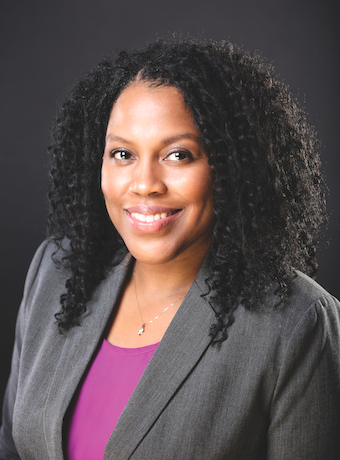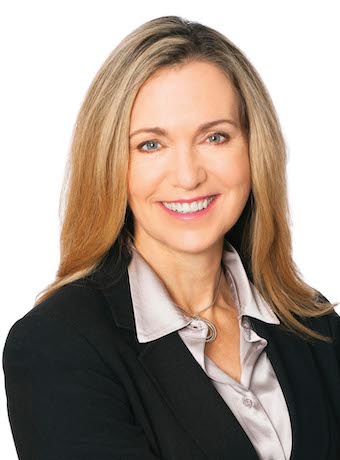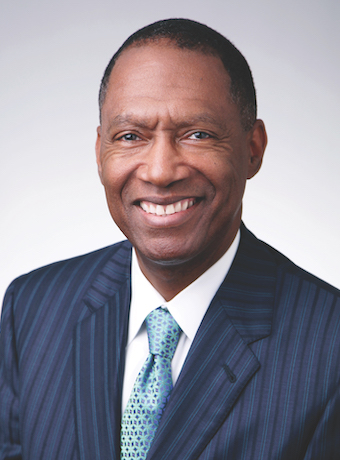12 minutes
Trusted advisors help top execs make good decisions and avoid pitfalls.
When the going gets tough, new challenges pop up or new opportunities arise, many credit union CEOs turn to the networks they have developed over the years to seek advice, guidance and support.
To learn how, when and why CEOs reach out to others, we’ve talked to five executives about their experiences.

CUES member Deborah Fears
President/CEO
Chicago Post Office Employees Credit Union
$29 million, Chicago
Do you have a group you reach out to regularly? The biggest group I have is a group of credit union CEOs that meets every couple of months and just talks shop about anything and everything that’s on our minds.
How do you keep in touch? Usually, we get together in person, but during the pandemic, we got together over Zoom. It was fantastic to keep that going so that we could collaborate, and it was extremely important at that time.
When was reaching out most impactful? Without hesitation, I would say during the pandemic. I was a brand-new CEO, one week into the job, when the government shutdown happened. It was my first time leading through a crisis of that magnitude. As you might imagine, I was pulling my hair out trying to navigate certain aspects of the job, so having the option to pick up a phone or shoot an email or a text to someone to ask for help was crucial to the success our credit union experienced during that time.
What sort of help did you get from them? Did you get specific suggestions back, or was it more that you had somebody to bounce ideas off? I didn’t want to disappoint my team, and I didn’t want to disappoint our members. I wanted members to feel comfortable that we could continue serving them, and I wanted the team to feel safe. So, it was just invaluable to have a great network to tap into—to ask for advice and suggestions and to bounce ideas around.
Was your network a group of CEOs that existed before you came along and you were able to tap into it? Yes, and that is one of the things I love about this industry—the continuous loop of collaboration. Simply from networking at various conferences, I’ve met different CEOs from other credit unions, and they welcomed me with open arms. There are a lot of credit union leaders here in Illinois and around the country who have been in the industry much longer than I have, and they did not hold back on sharing their experience and knowledge. They’ve said, “We’re willing to help you with whatever you need. Feel free to reach out to us.”
I like to say I’ve been like a sponge for several years now. I absorb everything I experience and figure out if I can or should apply it. I’ve been able to circle that back too. I’ve had CEOs of credit unions smaller than ours reach out during the pandemic because they saw we were continuing to operate and serve our members well.
Have you gained ideas from your network that you would never have thought of otherwise? Oh, absolutely. At every CEO meeting, conference or seminar, I’m armed with my notepad. There’s always something I walk away with. The wonderful thing about this industry is, no matter the venue, everyone is so passionate about what they do, and we’re just sitting around talking shop. It’s all about brainstorming and collaborating on how we can better serve our members.
What advice do you have for other credit union leaders about networking? I would recommend that anyone, especially those aspiring to get those C-suite positions, start networking early in their career. I just think about what life at our credit union would have been like if I had not already had my network when the pandemic hit.

CUES member Tricia Szurgot, CCE
President/CEO
Securityplus Federal Credit Union
$537 million, Baltimore
What are your general thoughts about networking? I count on my network to have a broad set of perspectives, and I want my network to rely on me to bring a comprehensive collection of views to anything I do.
I’m fortunate that my network spans the globe with people from various industries, roles, backgrounds and cultures. While my network is vast, I have a close circle of “go-to” advisors, some of whom I’ve known for decades and others I’ve come to know and trust more recently, including through CEO Institute.
It’s important to surround yourself with people who think differently than you ... and are comfortable challenging you. Some of the best outcomes are born from divergent viewpoints. I count on my “go-to” advisors to challenge me to think differently and go beyond—or around—an anticipated or expected path. As a CEO, the quality of your professional network becomes even more critical.
When is reaching out to your inner network most impactful? First, I want to learn from those who’ve gone down a road before me. I look to my inner network to leverage strategies, best practices and lessons learned from “best of the best” organizations that have tackled something already.
Second, I use my network to help me break through the sales “noise.” There’s so much content and marketing speak out there today that it’s often difficult to find “real talk” and credible information about important topics.
Third, when considering taking a position in a new organization is an important one. Joining an organization as CEO is like a marriage. It’s a long-term commitment; each party is putting its best foot forward through the courtship, and many people are counting on you to make it work and be fruitful. When [you are] considering moving to a new organization, it’s imperative to leverage your professional network and trusted advisors to get the “story behind the story.”
How does reaching out to your network help? Reaching out to my network often puts me on an accelerated decision-making path. I’m able to seek different perspectives, learn from trusted advisors, brainstorm ideas and facilitate thought-provoking and challenging dialogue. As CEOs, we serve many stakeholders. All are important and deserve our time and attention. Our organizations count on us to be transparent in our vision, reliable in our approach and steadfastly inspirational. I know I can’t be all things to all stakeholders all the time, and I leverage my inner network to help me expedite a path to success whenever and wherever I can.
How do you connect with your closest advisors? I’m proactive in connecting with my inner network regularly by email, phone, text and sometimes a simple LinkedIn post or message. I built my inner network of closest advisors over many years by connecting in many ways—colleagues, conferences, networking events, professional schools and institutes, trade organization boards, committees, think tanks, and regional and local groups. I’ve found the most practical way to make connections is to be strategic in the groups and organizations you spend time with.
How do you nurture the network, individually or as a group? Mostly individually. I’m proactive at nurturing my inner network and more passive about my broader network. I allocate time to thought leadership and share information important to me and my organization, and that, I think, will help others navigate today’s business environment. This leads to offline connections to dive deeper into our respective scenarios and help each other.Did attending CEO Institute help form your current inner circle of advisors? Absolutely. Before attending CEO Institute, I thought it was just one of those “lines on a resume” that recruiters and boards look for when hiring a CEO. Since attending all three segments, I highly recommend the experience. The structure, content, locations and instructors ... were excellent. For me, the most valuable part was the networking and connections made with other industry leaders. The structure of the programs allows you to get to know each other and find the right connections to help you build your inner circle. I have added a few new inner network advisors from my CEO Institute journey.
CUES member Max Villaronga, CCE
President/CEO
Raiz Federal Credit Union
$940 million, El Paso, Texas
When did reaching out to your inner network turn out to be most impactful? Early in my career, one of my mentors, Stephanie Sherrodd, was a powerful network partner for me. Stephanie is currently president/CEO of Sandia Laboratory Federal Credit Union ($3.1 billion, slfcu.org, Albuquerque). This was a formative part of my entry into the banking/CU industry. She helped me avoid failure.
What topics did you ask about? I asked her about various topics from policy, products, member behavior and organizational do’s and don’ts. It helped me learn how to more effectively integrate from military service into a civilian workplace. She helped me understand the pace of the culture and the nuances of organizational politics. Steph is wise and was able to help me avoid many pitfalls that I would not have avoided on my own. She was unselfish with her time and experience, which I appreciated very much.
How do you connect with your closest advisors? Email, texts, phone calls or lunches? All of the above. I reach out to a wide group of mentors who continue to mentor me to this day. I believe that friendships and partnerships need to be built on a foundation of trust, which requires consistent communication.
How do you nurture the network, individually or as a group? I generally initiate as much as possible. It takes work and effort to build relationships. It is unlikely to happen by accident. I find that you have to invest in helping each other.

Jay-Ann Gilfoy
President/CEO
Meridian Credit Union
$25 billion, Toronto
Do you have a network of advisors? I have several. One is a group I have met at various leadership development sessions and kept in touch with. A second is people I know from various boards that I am on. Another is one I created from my work at Vancity Community Investment Bank. I would call it a social purpose network or network of people leaders who are doing things that are not-for-profit or private sector groups that are all about changing the world, whether that’s through climate initiatives or social justice efforts. Also, I have a LinkedIn network. I believe in networks. I think they are the way to learn, grow your business and develop partnerships. And they help keep you honest on your own journey to being a better leader.
What has been the best piece of advice you have received from your networks? One of the best pieces of advice I got at the beginning of my journey was to take the time to listen in the CEO role. If you take the time to listen, it’ll go a long way in building trust. In my first 60 days at Meridian, I did a listening tour and got to meet every employee, some of them virtually.
Were your networks helpful during the pandemic? Yes. We were part of a network that started as a physical thing that got together once in a while, but it went completely virtual. We discussed how do you navigate sales and how do you build culture when people are working from home? We shared best practices and tips. It was very helpful because the organization was still expecting you to lead and figure it out, so you needed a trusted, safe place to go when you could talk to people dealing with the same problems.
How do you keep in touch with people? Predominantly email, but sometimes I’ll say, “Let’s get together for dinner, I haven’t seen you in a while.” For long-standing relationships, you need to break bread together because so much is about chemistry in person.
Do you have a sense that you must nurture the networks and keep in touch with people regularly? I think that once you have built a relationship and you’ve helped somebody out, you don’t need to nurture it. I had dinner last week with a woman I met four years ago. She had moved to France, and then the pandemic happened, but we picked up right where we left off and had a great conversation.
When is a network most valuable? I think it is important in times of change, when thinking about a new job or promotion or leaving the organization. Having those trusted advisors that you can go to and they can tell you if they think it is a good fit is helpful in making some big decisions.

CUES member Maurice Smith
Recently Retired CEO
Local Government Federal Credit Union
$3.7 billion, Raleigh, North Carolina
When did reaching out to your inner network turn out to be most impactful? When I was awarded the opportunity to be the CEO of LGFCU, I sought to learn from other CEOs I greatly admired. I asked each for advice on how I should go about being a leader. I also called a few former CEOs who I heard had been dismissed from their previous jobs. I asked for advice on what not to do.
We talked about how to report to a board of directors. We discussed leadership styles and the importance of veracity. The conversation centered on the soft skills one needs to navigate relationships, negotiations and public relations.
How does reaching out to your network help you as CEO? My network of colleagues has been revealing and honest. It is actually therapeutic to be transparent with others who are invested in my success.
How do you connect with your closest advisors? Usually, phone calls are the best way to communicate. Perhaps I’m just old-fashioned, but I think the intimacy of certain topics is more effective when I can hear voice inflection and be natural.
How do you nurture the network, individually or as a group? Nurturing relationships is best when we remember what we learned in kindergarten. Be kind. Be respectful of others’ time. Be considerate of others’ opinions. Be mindful of your manners. cues icon
Art Chamberlain focuses his writing on the credit union system.









